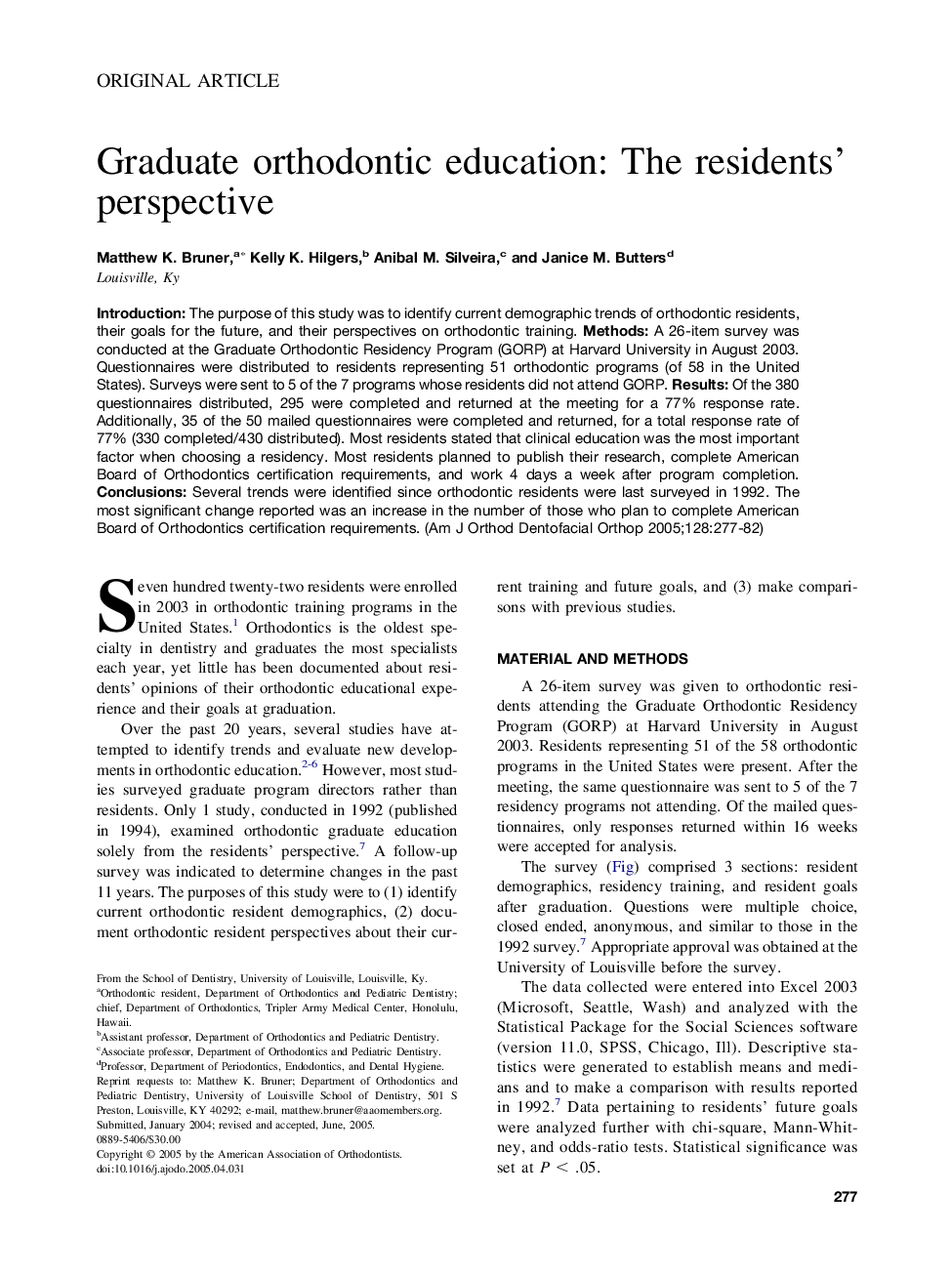| کد مقاله | کد نشریه | سال انتشار | مقاله انگلیسی | نسخه تمام متن |
|---|---|---|---|---|
| 9992655 | 1582815 | 2005 | 6 صفحه PDF | دانلود رایگان |
عنوان انگلیسی مقاله ISI
Graduate orthodontic education: The residents' perspective
دانلود مقاله + سفارش ترجمه
دانلود مقاله ISI انگلیسی
رایگان برای ایرانیان
موضوعات مرتبط
علوم پزشکی و سلامت
پزشکی و دندانپزشکی
دندانپزشکی، جراحی دهان و پزشکی
پیش نمایش صفحه اول مقاله

چکیده انگلیسی
Introduction: The purpose of this study was to identify current demographic trends of orthodontic residents, their goals for the future, and their perspectives on orthodontic training. Methods: A 26-item survey was conducted at the Graduate Orthodontic Residency Program (GORP) at Harvard University in August 2003. Questionnaires were distributed to residents representing 51 orthodontic programs (of 58 in the United States). Surveys were sent to 5 of the 7 programs whose residents did not attend GORP. Results: Of the 380 questionnaires distributed, 295 were completed and returned at the meeting for a 77% response rate. Additionally, 35 of the 50 mailed questionnaires were completed and returned, for a total response rate of 77% (330 completed/430 distributed). Most residents stated that clinical education was the most important factor when choosing a residency. Most residents planned to publish their research, complete American Board of Orthodontics certification requirements, and work 4 days a week after program completion. Conclusions: Several trends were identified since orthodontic residents were last surveyed in 1992. The most significant change reported was an increase in the number of those who plan to complete American Board of Orthodontics certification requirements.
ناشر
Database: Elsevier - ScienceDirect (ساینس دایرکت)
Journal: American Journal of Orthodontics and Dentofacial Orthopedics - Volume 128, Issue 3, September 2005, Pages 277-282
Journal: American Journal of Orthodontics and Dentofacial Orthopedics - Volume 128, Issue 3, September 2005, Pages 277-282
نویسندگان
Matthew K. Bruner, Kelly K. Hilgers, Anibal M. Silveira, Janice M. Butters,